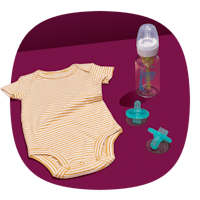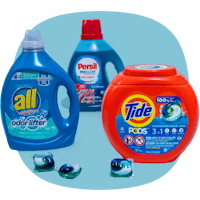Did you know you can use your Flexible Spending Account (FSA) or Health Savings Account (HSA) to buy allergy treatments over the counter? It’s true. HSA allergy medicine is a thing. You can buy allergy medications with those pre-tax dollars if you have an FSA or HSA account.
So, if you’re someone who spends a small fortune in order to breathe during allergy season, this is one way to cut costs. What about allergy testing? Allergy shots? I’ve got all the details on FSA and HSA allergy medicine and more below.
For more smart shopping tips and savings hacks, text HACKS to 57299. Or, download the Krazy Coupon Lady app.
1. Familiarize yourself with your FSA or HSA account before heading to the store.

Basically, if you have a Flexible Spending Account (FSA) or a Health Savings Account (HSA), you contribute a portion of your pre-tax income to the account. This means you aren’t paying taxes on these dollars. You’re keeping this money, the government isn’t taxing it, and able to spend it all on qualifying medical expenses.
FSA funds expire at the end of the year, so you have to be sure you’re using them up before that point. HSA funds roll over, but there’s a maximum amount you can contribute. (In 2023, it’s $3,850 per individual and $7,750 per family. Those 55 years and older can contribute an extra $1,000 per year).
RELATED: 10 Surprising Things You Can Buy With HSA Credit on Amazon
2. It’s NOT just prescriptions — over-the-counter allergy medicines are also FSA- and HSA-eligible.

First, most prescription allergy meds qualify and are eligible to use with FSA or HSA funds. But even some over-the-counter allergy meds may qualify. Here’s a quick list of the most common eligible medications:
- Allergy alert bracelets
- Antihistamines
- Anti-itch creams and ointments
- Decongestants
- Epinephrine
- Nasal sprays and mists
- Neti pots and nasal wash systems
- Sinus rinses
- Steam inhalers
TIP: You can also buy over-the-counter medicine like pain relievers and antacids using your FSA or HSA. This has been the case since 2010, when the Affordable Care Act was enacted.
3. Most allergy brands qualify for purchase with FSA or HSA funds.

You can find out exactly which allergy medications are eligible for FSA or HSA funds at the FSA store. But here are a few brands that are on the list:
4. Allergy shots — and even the new allergy drops — can also be covered by FSA or HSA dollars.

If your doctor prescribes allergic immunotherapy, widely known as “allergy shots,” you can use your pre-tax FSA or HSA dollars on it. You’ll also need to have allergy testing to confirm your diagnosis, but once you’ve got those in place, you can absolutely use these funds for treatment.
Recently, some patients have turned to allergy drops (sublingual immunotherapy), which are a newer, doctor-recommended alternative to allergy shots. They’re exactly what they sound like — instead of getting shots done, you give yourself the drops each day under the tongue for three years (or as recommended by your doctor). One bottle of allergy drops lasts several weeks, and each bottle after the first will have a higher dose of the allergens so you build immunity over time.
One of our staffers turned to allergy shots under recommendations from their ENT doctor. The bottle cost $225 upfront for a 14-week treatment, but they were able to use HSA dollars to cover the entire purchase.
Just note that since allergy drops are a newer concept, that they’re not yet FDA-approved.
5. Depending on your insurance, you may even use FSA and HSA funds for allergy testing.
This is true for most healthcare plans. Double-check with your insurance provider to be sure your specific plan is covered. But according to the IRS, the cost of treatment, cure, diagnosis, mitigation, or prevention of a disease is an eligible expense. This means environmental sensitivity tests, along with food sensitivity tests, probably qualify.
In fact, one of our staffers had allergy testing done in February 2023, which cost $638 without any medical coverage. They were able to pay 100% of the testing with HSA dollars.
































Tell us what you think